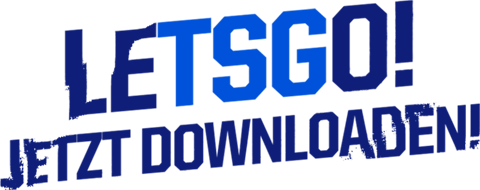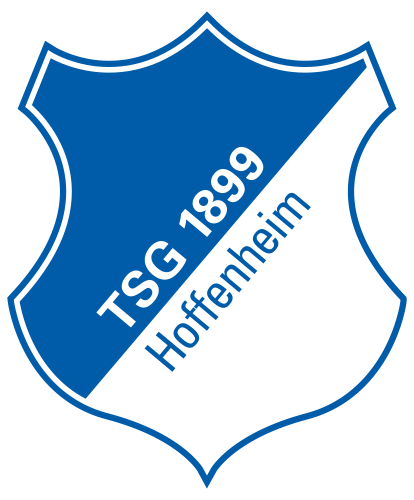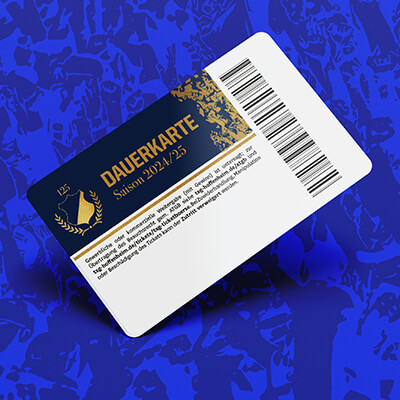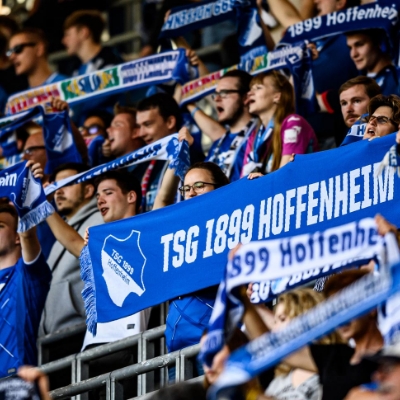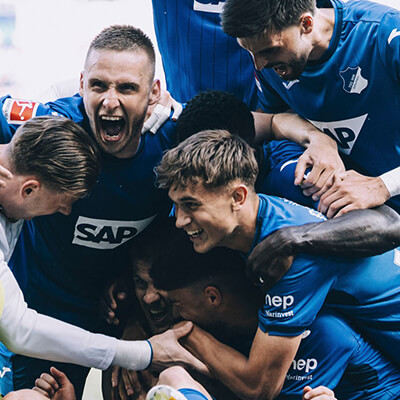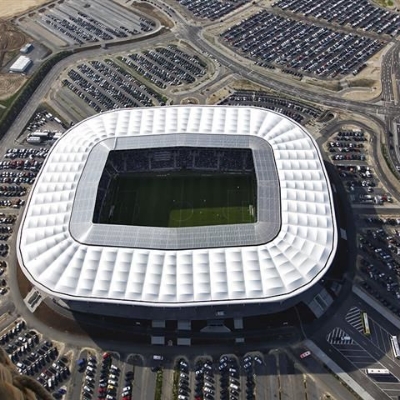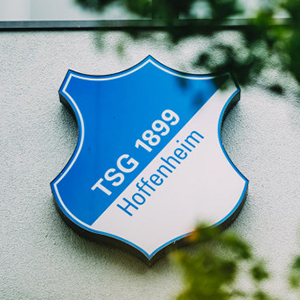One year of the DFL "Taskforce for the Future of Professional Football"
"Even before I joined the DFL, I followed the task force's dialogue, its results and the implementation of the recommendations for action with great interest," said Donata Hopfen, chairwoman of the DFL executive board and spokeswoman for the DFL executive committee: "The first major milestones have already been achieved - for example with regard to sustainability and club-fan dialogue. We will continue to broach these subjects intensively in order to translate this unique process into action. An open culture of discussion and social engagement are more important than ever for football as a popular sport."
In the taskforce set up by the DFL executive committee, 37 experts from the fields of sport, society, science, politics and business had engaged in interdisciplinary discussions between October 2020 and January 2021 on significant topics and issues concerning the future of professional football. On 3 February 2021, the summary report with 17 recommendations for action for the DFL and the clubs of the Bundesliga and Bundesliga 2 was published.
In its implementation, the DFL continues to rely on a triad of well-founded analysis, processing and subsequent development of measures. In view of the complexity of many individual aspects, it will remain the case that such steps must be achievable for all clubs - and therefore the economic and structural range within the DFL must be taken into account, from UEFA Champions League participants to clubs promoted from the 3. Liga.
In March 2021, the DFL executive committee had prioritised certain implementation steps with regard to the recommendations for action. Here is an update on the respective areas of focus:
Sustainability
The task force had recommended a "fundamental commitment to sustainability in German professional football". In this respect, the professional clubs already took a groundbreaking step on 14 December 2021. Following a corresponding resolution of the DFL general meeting, a clear commitment to sustainability in all its dimensions - ecological, economic and social - is now anchored in the preamble of the DFL e.V. statutes. In addition, the Bundesliga and Bundesliga 2 have become the first major professional football leagues ever to make sustainability criteria mandatory in their licensing regulations. The concrete criteria are currently being developed and will be finalised in the coming months together with the clubs and external experts. The corresponding guideline is then to be adopted by the 36 professional clubs.
Based on this, the DFL will publish an annual sustainability report that provides an overview of measures and key figures relating to the Bundesliga and Bundesliga 2.
The DFL will organise a sustainability congress for the first time this year. This is intended to create an exchange platform for the DFL and the clubs of the Bundesliga and Bundesliga 2, both among themselves as well as with experts from politics, business, society, science and the media.
The recently extended cooperation between the DFL and SPONSORs will also focus on the topic of sustainability in the future. With the support of the DFL, SPONSORs will award the "German Sports Sustainability Award" for the first time this year as part of the SPOBIS sports business event.
Women in professional football
The DFL is intensively involved in promoting career opportunities for women in the field of professional football. In cooperation with the external specialist consultancies Odgers Berndtson and Frauen Karriere Index (FKI), comprehensive analyses have been carried out in recent months. The results are currently being processed and classified. The aim is, among other things, to provide a well-founded overview of the status quo and thus also, for example, of possible obstacles to careers in football for women.
Based on these analyses, the DFL will for the first time convene a plenary meeting of the human resources managers of all 36 clubs to work out further steps to promote gender equality. This will be done with the support of external expertise.
For the certificate programme "Management in Professional Football", which is aimed at future managers in the sporting field, the DFL and the DFB, as of last year, have been offering two scholarship places exclusively for female participants.
The DFL itself will establish a job shadowing programme explicitly aimed at women. This is intended to provide insights into various areas of work within the DFL group and to support entry into the field of professional football.
Women's football
In recent months, a working group on the topic of women's football has held intensive discussions with representatives of the Women's Bundesliga committee, the DFB and the DFL. The DFL - in consultation and consensus with the DFB, which is responsible for women's football - will get involved in order to support the visibility of the highest women's division through communication campaigns. This focus was prioritised by the representatives of the Women's Bundesliga committee at their annual general meeting. Concrete measures will be discussed within the corresponding DFL committees.
In addition, the DFL supports the development of an analysis on the status of women's football. Facts and best practices will be used to demonstrate the attractiveness for stakeholders (including fans, clubs and sponsors).
Club-fan dialogue
For the upcoming 2022/23 season, the DFL licensing regulations will for the first time include binding structural requirements for club-fan dialogue. Mandatory basic requirements are included as well as recommended quality requirements. This resolution of the DFL general meeting of 14 December 2021 is intended to safeguard the high standard of local club-fan dialogues in many places and to provide impetus for further development. The "Taskforce for the Future of Professional Football" had suggested "further development and standardisation of the existing club-fan dialogues, including the development of quality criteria" and anchoring these criteria in the statutes. The new guidelines take up recommendations as well as feedback from fans, fan representatives, socio-pedagogical fan projects, fan initiatives and the Fankulturen working group, which were included in an extensive consultation process. This process was coordinated between the DFL and the "Competence Group for Fan Cultures & Sport-Related Social Work" (KoFaS), which has been closely monitoring the issue of club-fan dialogues since 2015.
The DFL fan affairs department will develop a handbook to explain and specify the guidelines for the design and implementation of club-fan dialogue.
Economic stability/international reforms
For months, the DFL has been intensively involved in the talks on the UEFA reform of club licensing and financial play, with the close cooperation of Bundesliga clubs, and has represented the position of German football.
In this regard, the DFL supports measures to strengthen financial stability and cost rationality as well as strict enforcement and sanctioning in the event of violations. In contrast, the DFL strictly rejects proposals to deregulate or liberalise investor funds. In this sense, the DFL will also contribute to the current final phase of the discussions on the UEFA reforms.
Discussions are also underway at the international level on other topics, such as the general calendar. This is of considerable relevance with regard to the position of domestic leagues - especially against the background of expansion plans of international associations. Domestic leagues are the heart of professional football - this must be recognised and taken into account in all discussions.
Strategic discussions regarding further criteria to ensure economic stability in the national licensing procedure were initiated in the DFL finance committee. These discussions will be continued, taking into account the final UEFA reform of club licensing and financial fair play.
